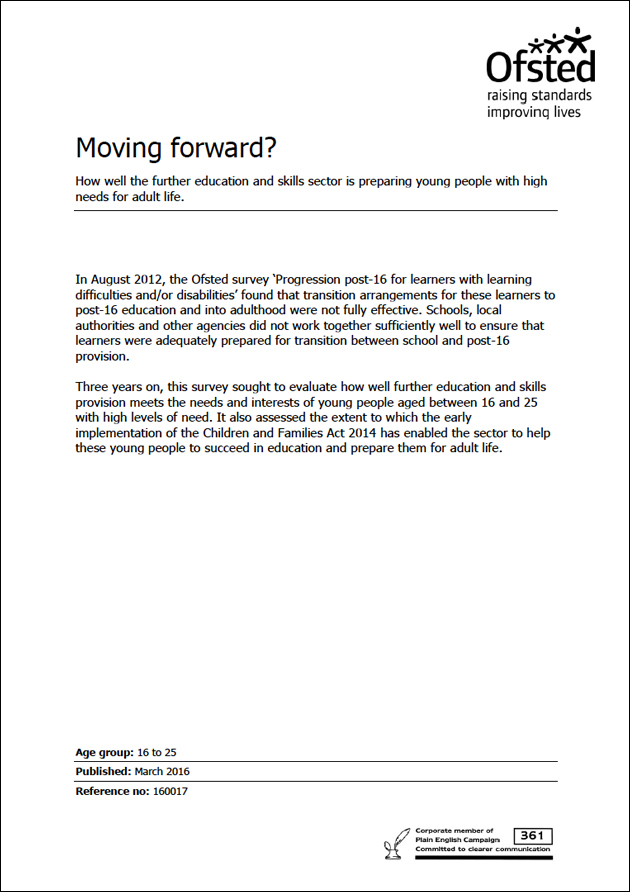A leading expert in learning difficulties and disabilities has branded the FE sector a “postcode lottery” for young people with high needs, after an Ofsted report found the provision they receive “was often not of a high enough standard”.
In an expert piece for FE Week, Kathryn Rudd (pictured), principal of National Star College and chair of the Association of National Specialist Colleges (Natspec), criticised the distinct lack of choice for students with special needs and disabilities, highlighted in the recent Ofsted report: ‘Moving forward? How well the further education and skills sector is preparing young people with high needs for adult life.’
The report, which was published on March 22, focused on young people aged between 16 and 25 with high levels of need. In 2014/15, there were over 22,000 young people in England in this bracket with allocated places at FE and skills providers.
It found that learners with high needs often receive different levels of support depending on the effectiveness of commissioning arrangements from the local authority in which they live.
The report also found that schools and local authorities often recommended an FE and skills provider that would be easy to access, rather than considering what was in the individual learner’s interests.
Ofsted visited 17 providers between January and March 2015, analysed inspection reports covering the period September 2014 to March 2015, collected the views of over 1,600 young people and talked to more than 60 of them in focus group meetings.
The report found that “only three providers stood out for their high quality of provision”, while eight “did not have adequate strategies, experience or expertise to ensure that they were able to support their learners with profound and multiple learning difficulties or disabilities”.
A lack of appropriate resources was also a problem.
The report says: “Five providers did not have the specialist resources, including staff with the necessary experience and expertise, required to support learners with high needs.”
The assessment and recording of learners’ progress and achievements was identified as “the weakest aspect of the provision seen for learners with high needs”, while careers guidance was also said to be “generally weak” and learners’ progress in English and mathematics was “often too slow”.
Clare Howard, chief executive officer of Natspec, said the report is “consistent with what Natspec has been advocating for some time”.
“Local authorities need to provide more detailed information on the full range of choices available, and should focus on the individual needs of learners,” she said.
She also commented on the issue of variation in practice across local authorities. “Natspec member colleges … have to work with many different approaches and often inexperienced staff. These create delays and uncertainty for young people and their families.”
In response to the findings of the report, a spokesperson for the Department for Education said:
“We want every student to receive the best education or training, including those with the highest needs, so they can reach their full potential. That is why we are providing support for both the FE and skills sector and local authorities to deliver our reforms to the SEND [special educational needs and disabilities] system, through measures including SEND advisers and workshops for providers and councils.
“We have also made £5m available to councils to promote supported internships, employer engagement and work placements for young people with SEND to help their transition into work.
“We welcome this report and we recognise the need to have robust data to allow us to track and monitor the impact of this provision, which is why we have accepted Ofsted’s recommendation to produce national data on learners’ sustained destinations.”




As Ofsted has tightened its grip on FE providers since 2001, Students with Learning Disabilities and Disabilities or, those with Additional Learning Support needs, have slipped further down the agenda. There used to be a strong inclusion movement but sadly the energy has dissipated correspondingly with the obsession with Ofsted grading criteria. It’s one of the reasons I left FE.
Well, hopefully with the planned devolution of AEB funding to LEPs/local authorities, there will be a better, locally managed process for allocating funding, including ‘learning’ and ‘learner’ support, to FE providers so learners get the best (priced) support they need. What could possibly go wrong?